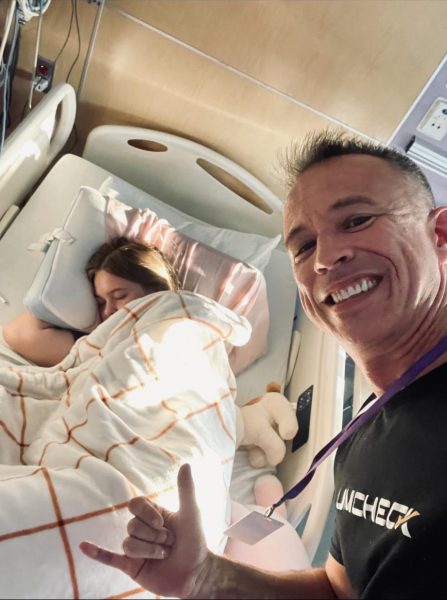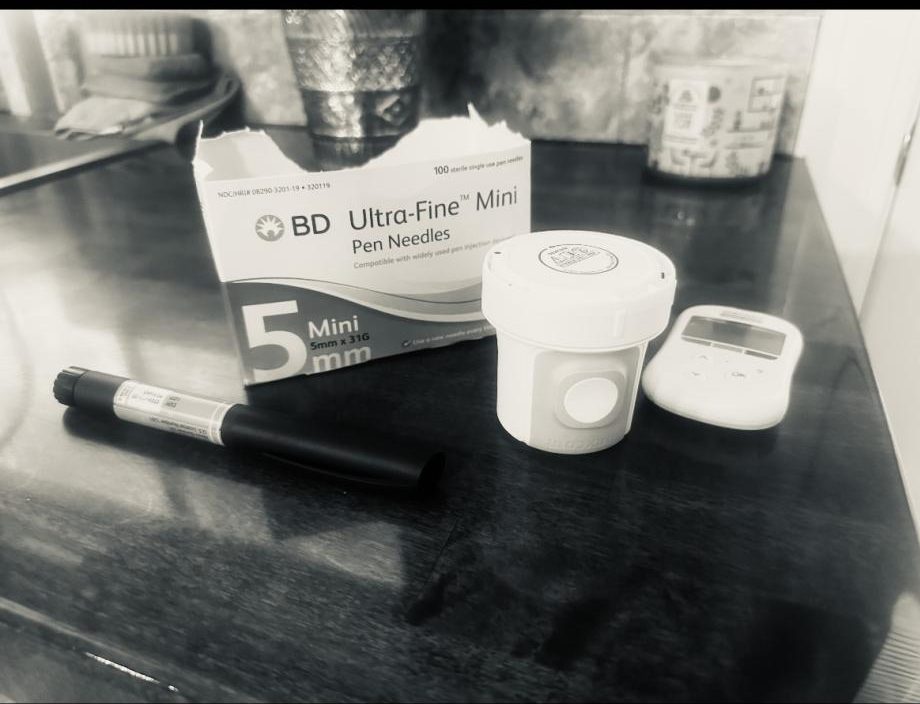I’m not afraid of needles anymore.
It has always been one thing after the other, but never a sob story. I was inches away from rock bottom. This is the moment I took it as an opportunity.
For the past two years, I have always wondered why I was always tired, but no one else was.
On July 27, I was diagnosed with Type 1 Diabetes. It was easily one of the most frustrating days of my life. That day it was the first time going to urgent care on my own. I felt very sick and dehydrated. I thought I was just going to get medicine because I had a viral sickness but when I told them my symptoms something seemed to have changed.
They came into the room I was in, and drew my blood. Moments later, there I was, sitting by myself staring at the wall after I had just received the news. Completely in denial and shock. I thought I was alone but when Alli Greer reached out to me I didn’t feel so lonely anymore. She could relate.
The first thought when the word diabetes is brought up is nothing but far from the truth. Most people think it’s because you are either overweight or don’t eat healthy. But what most people don’t know is that it’s genetic. Genes play a big role in this illness. Everyone is worrying about being judged when they’re in situations where they have to let someone know that they have Type 1. But it’s nothing to be ashamed of.

Growing up I have played soccer my whole life. It had always been my number one priority and passion.
But all of a sudden everything went blank and I havent played in two years. Having Type 1 definitely can put a setback in someone’s life. I just had never known why. Sure, it sucked but at that moment I took it as an opportunity.
Today, I go to the gym every day, have a good routine, and I am finally healthy. I plan on starting my soccer life back up at the beginning of 2025.
Type 1 diabetes is less common than type 2—about 5-10% of people with diabetes have type 1. It has been known to be caught as an infant or young adult. It can take months or years to start developing symptoms. In the United States, white people are more likely to develop type 1 diabetes than African American and Hispanic or Latino people. Type 1 can either be caused by an environment but more commonly genetic. Since Type 1 is an autoimmune disease, your body destroys the cells in your body that make insulin. Certain genes are common in some people more than others. That is why it is more common in the white race.
Most people hide this. They are ashamed and don’t want people to know. But you are never alone with his illness. Yes, sometimes it can be really exhausting and hard. But you can not control every little part of you or your life.



